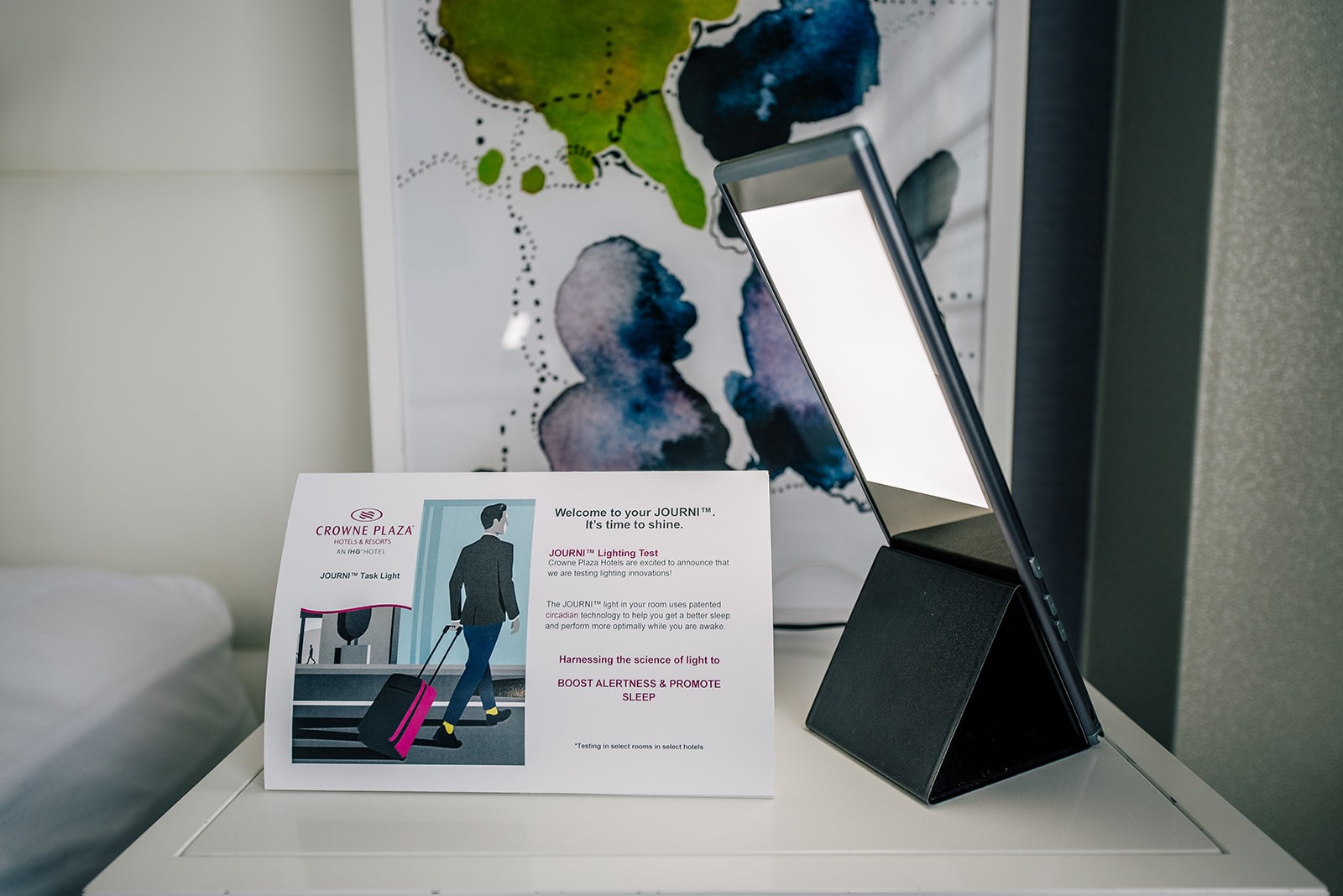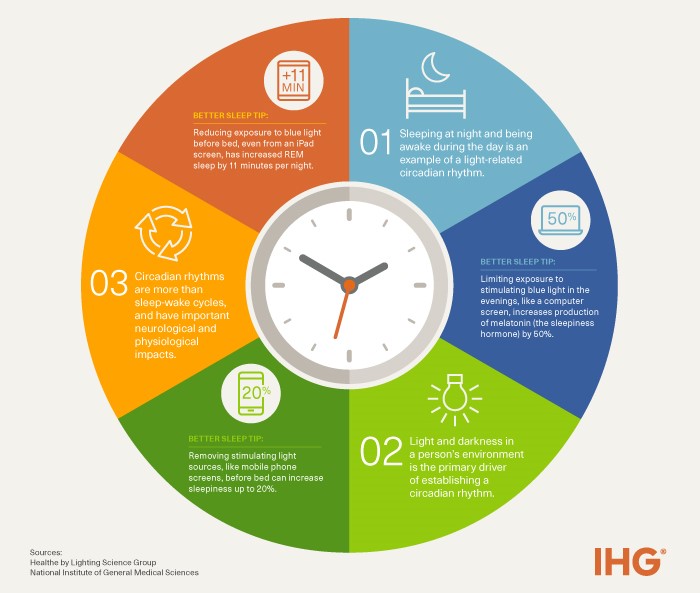The JOURNI Mobile Task Light will be installed in guest rooms at the Crowne Plaza Atlanta Airport, but could ultimately be rolled -out across its entire portfolio if it proves successful. The product uses light technology to regulate the body's circadian rhythm or 24-hour internal body clock which effects important biological functions such as sleep, hormone levels, body temperature and metabolism.
Designed using Healthe's patented GoodDay and GoodNight spectrum technologies, it allows access to the alertness and focus-enhancing spectrum during the day, and then changes to the warm, sleep-enhancing spectrum at night. The proprietor says the versatile, dual-spectrum luminaire can help hoteliers "to effortlessly bring energy-efficient, circadian lighting" into rooms.

While it is recommended that adults get between seven and nine hours sleep per night, the key finding of the onepoll survey was that people on average get one hour less sleep when travelling. UK travellers appear to fear worse than their USA colleagues, averaging 5.10 hours versus 5.24 hours, but both are down significantly on recommended levels.
The results show the average business traveller loses around 58 minutes of sleep each night when staying away from home, averaging just 5 hours and 17 minutes of sleep. The biggest causes of a restless night's sleep for those travelling are being in a different environment (44%), unfamiliar noises (35%) and working late (35%). In total 78% of respondents said they have trouble sleeping when away from home, with 77% saying they miss the comfort of their own bed when travelling.
Over two thirds (67%) of those surveyed stated they feel more tired when they are away from home. To aid sleep, nearly a half either try listening to music (47%) or watching TV (45%) to try and fall asleep. Almost half (47%) have also looked at other remedies, like warm milk etc, to help them sleep.
While light can be a stimulant, directly alerting the brain, it can also be used to promote sleep patterns depending on the spectrum and intensity of light exposure. Airlines are already using the concept on long-haul flights to support passenger comfort.
INFOGRAPHIC - Circadian rhythms are believed to influence sleep-wake cycles, hormone release, eating habits, digestion, body temperature and other important bodily functions Source: IHG
Source: IHG
"We're excited to be the first hotel company to pilot Healthe's JOURNI product and are already working on what's coming next," says Brian McGuinness, Senior Vice President of Global Guest Experience Shared Services, IHG.
This is one of a number of ways IHG is working to use innovations and technologies to help guests sleep better. Its Crowne Plaza Hotels & Resorts Sleep Advantage Programme uses bed linens and essential oils to reduce stress and support sleep; at EVEN Hotels it uses lighting profiles in blue, red, green or yellow to either energise or relax; the Holiday Inn Pillow Menu, like many properties, allows guests the option to choose between a varied range of pillows, from firmness to type and even filling.